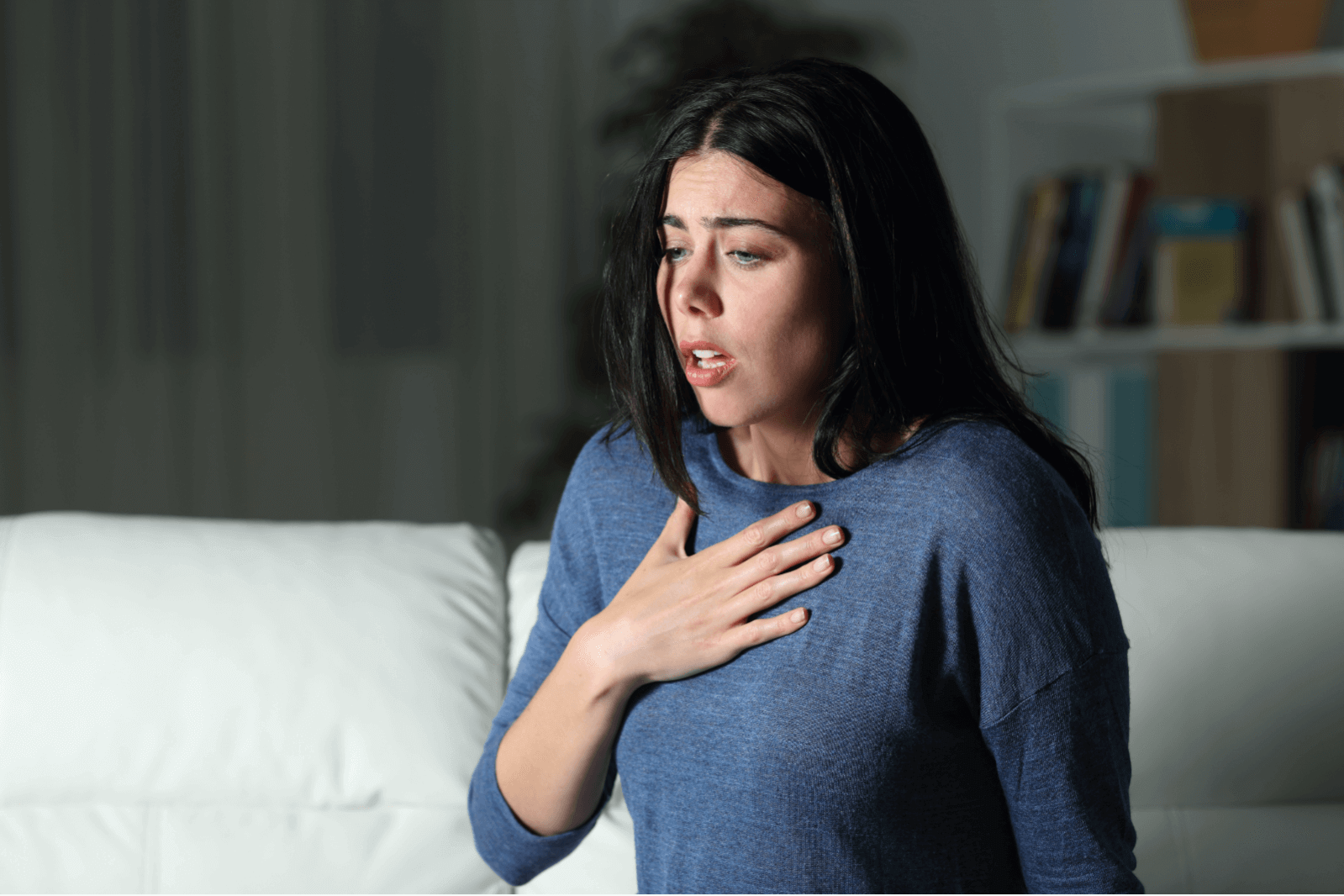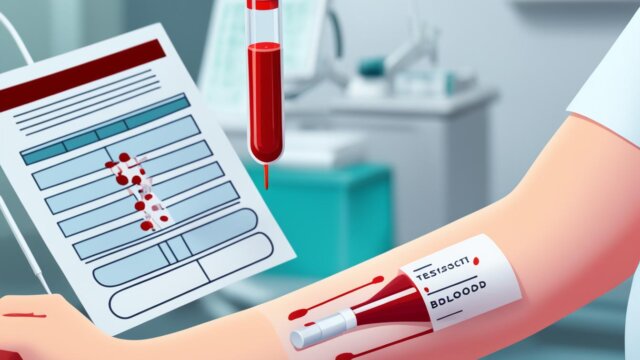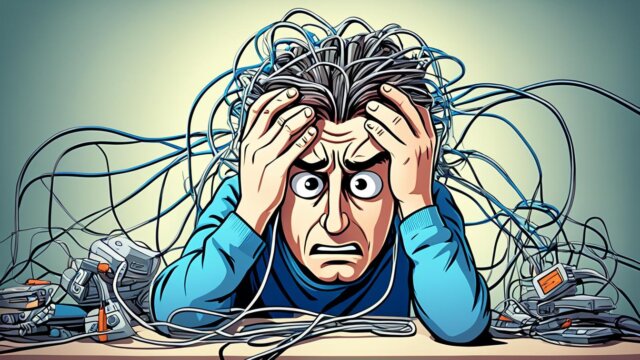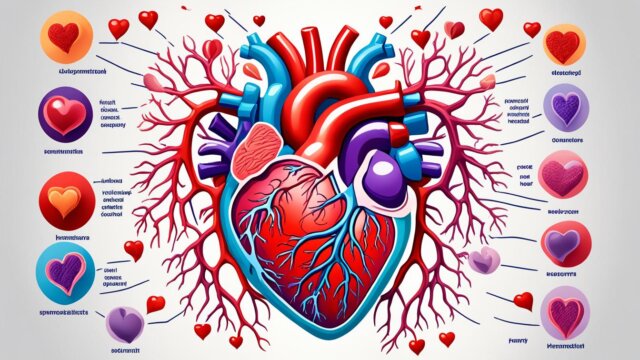FTC disclaimer: This post may contains affiliate links and we will be compensated if you click on a link and make a purchase.
Heart palpitations, also called heartbeats, are abnormal, rapid heartbeats that can occur at any time. They can be mild and intermittent or severe and continuous.
They are often signs of an underlying health condition but can also be caused by anxiety, stress, exercise, caffeine, alcohol, nicotine, or other substances.
Moreover, Heart palpitations are a common symptom that can indicate various health problems.
According to the research paper, some of the most common causes of heart palpitations include anxiety, high blood pressure, coronary artery disease, and panic attacks. There are several ways to prevent and treat heart palpitations.
Let’s look into in-depth details of heart palpitations causes, symptoms, prevention, diagnosis, and treatment.
What are Heart Palpitations?
Heart Palpitations refer to perceptions of greater intensity and speed of the heartbeat.
That feeling is considered a normal body reaction after intense physical activity such as exercise or heavy work.
However, palpitations may occur at rest; the person feels his heart beating fast, even standing still or doing an activity that requires effort.
In addition to pounding may also be feelings of beats skipped or stopped. Heart palpitations can be felt in the chest, throat, or neck.
What does a palpitating heart feel like?
Typically, the heart can beat 60 to 100 times per minute. The person usually does not feel these beats, much less bother.
However, you can feel the heartbeat in intense moments, such as after exercise and in fear or stress mode.
It is normal for people to feel their heartbeat beating faster or increase the volume of blood pumped.
Palpitations, however, are strong and fast beats easily seen by people and occur when the person is still watching television, moving slowly, and so on.
In heart palpitations, the heart beats 100 times a minute or so intense for no apparent reason.
What is the leading cause of heart palpitations?
Anemia, anxiety, fever, thyroid gland problems, low blood sugar (hypoglycemia), mild deformities of the heart valves, and some medical conditions can cause palpitations.
In addition, heart palpitations can also increase because of caffeine consumption in coffee, tea, and carbonated beverages, alcohol, snuff, certain medications, diet pills, illegal drugs, asthma inhalers, and decongestants.
When should I be worried about heart palpitations?
Palpitations may be normal as it happens from time to time and last only a few seconds. But it is more worrisome if they occur frequently and stay as long as a few hours.
Also, it can become more severe when accompanied by sweating, shortness of breath or difficulty breathing, nausea, vomiting, or pain in the chest, arms, jaw, or back.
Always consult a doctor; only a professional can properly diagnose these conditions.
The doctor will ask all the necessary questions to make a complete medical history and perform a physical exam to have the most significant background on the possible causes of palpitations.
What are standard tests for Heart Palpitations?
The most common tests that can be sent to perform are an electrocardiogram and a blood test. Other tests are sometimes performed, such as Holter monitoring or echocardiography.
How to prevent Heart Palpitations?
As for prevention, it is best to stop using stimulants such as caffeine and snuff for palpitations.
It would help if you also stopped drinking alcohol and consuming illegal drugs.
Additionally, we recommend breathing exercises, learning to relax, exercise, reducing overweight, and not ignoring your doctor if you have to take drugs or other tips to follow.
How can you identify the symptoms of Heart Palpitations?
Heart palpitations are heartbeat sensations that feel like your heart is pounding or racing. You may have an unpleasant awareness of your heartbeat or feel skipped beats.
The heart rate may be normal, or it can be an abnormal heartbeat felt in the chest, throat, or neck.
Palpitations are common and often normal. Moreover, you need to understand that palpitations are a symptom, not a disease. It is important to determine its cause.
Call a healthcare provider right away:
- If you have palpitations that last a few hours.
- If Heart Palpitations occur frequently.
- You can have sweating, shortness of breath, lightheadedness, nausea, vomiting, or pain in the chest, arms, back, or jaw.
In a very healthy individual, the heart beats between 60 and 100 times per minute.
In people who exercise or take medications to maintain heart rate, it may go as little as 55 beats per minute.
Moreover, in individuals whose heart rate is fast (at greater than 100 beats per minute), it’s referred to as tachycardia, while a slow heart rate is named bradycardia. A single extra heartbeat is called an extrasystole.
Heart troubles include those that naturally occur at the time of palpitations. Known heart disease and significant risk factors for heart disease boost the risk of abnormal heart rhythm.
Abnormal heart valves and electrolyte abnormalities appear to be common causes of abnormal rhythms.
Common Causes for Heart Palpitations
Heart palpitations can be caused by:
- Anxiety, stress, fear
- Anemia
- taking too much caffeine
- taking prescribed medications, including those used to treat thyroid disease, asthma, hypertension, or heart problems
- Cocaine
- Pills for dieting
- Exercise
- Fever
- Hyperventilation
- Low levels of oxygen in the blood
- Heart valve disease, including mitral valve prolapse
- Nicotine
- Overactive thyroid
Reducing caffeine intake will often significantly reduce heart palpitations. Also, reducing stress and anxiety can help lessen the frequency or severity of heart palpitations.
Try deep breathing or deep relaxation technique when palpitations arise. Similarly, practicing yoga or tai chi can reduce the frequency of heart palpitations.
Keep track of the frequency of palpitations, the time, how long they last, your heart rate at the time they occur, and how palpitations feel. This information can help the doctor determine their seriousness and underlying cause.
Once the doctor rules out a serious cause, try NOT to pay attention to heart palpitations unless you notice a sudden increase in heart rate.
If you have never had palpitations before, discuss them with your physician.
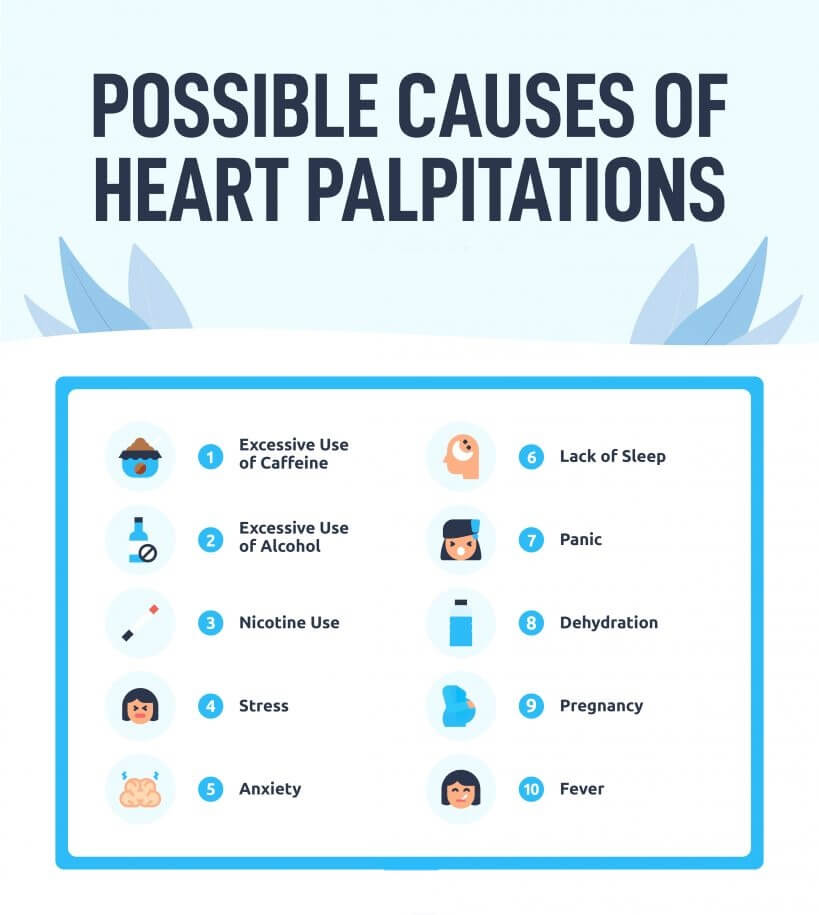
How can Heart Palpitations be prevented?
Medication and family history
Tell your doctor and the team doctor about any medications you take (including over-the-counter medicines, vitamins, or herbal remedies).
Also, tell your doctor if you have a history of diabetes, liver disease, renal or cardiac disease.
Moreover, if you have a family history of heart disease, stroke, high blood cholesterol, or high blood pressure may be at risk of certain conditions. Notify your doctor if there is a history of some of these diseases in your family.
Stop smoking and taking Alcohol and Caffeine.
Smoking can cause palpitations. Smoking, along with caffeine and alcohol, can also lead to heart palpitations.
Eliminate caffeine and alcohol from your diet, and palpitations may go away or decrease.
Keep a record of what you eat.
Maintain a diary of your irregular heartbeat, or palpitations, if they occur frequently.
Include details about any food intake or physical activity that you were doing when it happened. A food diary is useful for determining the cause of an irregular heartbeat.
Do exercise under the supervision of the medical practitioner
Do exercise under doctor supervision. Walking, swimming or moderate aerobic activity can help you lose weight and promote oxygen flow in the lungs and blood. Also, to help you relax.
Try to reduce anxiety.
According to the research paper, anxiety can cause heart palpitations. Use relaxation techniques to reduce the amount of anxiety. If you feel anxious, find a quiet environment and close your eyes.
Breathe deeply, slowly, and steadily, and concentrate on things that have relaxed in the past.
Don’t stop medication without any reason.
If you’re prescribed a drug for heart palpitations, make sure to go through the therapy recommended by your physician. Adhere to the therapy instructions you’ve been given.
If you miss a dose of your medication, ask your physician what to do.
If you encounter symptoms or side effects, especially those severe, be sure to share them with the medical professional who is attending you.
They can prescribe medication or recommend other effective alternatives for dealing with these issues.
Heart Palpitation Risk Factors
You may be at risk of developing palpitations:
- If you are highly stressed
- Having an anxiety disorder or regularly experiencing panic attacks
- If you are pregnant
- You may experience palpitation if you take stimulants, such as some cold or asthma medications.
- Having hyperthyroidism (overactive thyroid gland)
- Palpitations may occur if you are diagnosed with other heart problems, such as an arrhythmia, a heart defect, or a heart attack in the past.
Heart Palpitations Complications
Your palpitations don’t suggest that you are at risk of a heart attack or stroke unless you have an underlying heart condition. If so, potential complications include chest pain and heart attacks.
Let’s look into some of the possible complications of heart palpitations.
Fainting
Heart palpitations can also lead to fainting episodes. While fainting is not typically dangerous in and of itself, it can be a sign of a more serious underlying health condition.
If you experience heart palpitations and/or fainting episodes, it is important to seek medical attention to rule out any potential complications.
Cardiac arrest
Heart palpitations may be a symptom of an underlying heart condition that can lead to cardiac arrest.
Some of the most common heart conditions leading to cardiac arrest include coronary artery disease, arrhythmia, and congestive heart failure.
Stroke
Heart palpitations are a common problem, but they can also signify something more serious. When heart palpitations occur with other symptoms, it could be a sign of a stroke.
Strokes can occur when there is a blockage in the brain’s blood supply or when a blood vessel in the brain bursts. Symptoms of a stroke can include sudden numbness or weakness on one side of the body, confusion, trouble speaking, trouble to see, and heart palpitations.
Heart failure
Heart palpitations are a common symptom of heart failure.
In addition to causing an irregular heartbeat, they can lead to other complications, such as chest pain and shortness of breath. If left untreated, heart failure can eventually lead to death.
Diagnosis of Heart Palpitations
If your family doctor believes you have heart palpitations, they will begin by listening to your heart with a stethoscope to determine if it’s beating irregularly or too quickly.
Your doctor may also check for health conditions that could cause heart palpitations, such as a swollen thyroid gland.
Other tests your doctor may ask you to perform are:
Electrocardiogram (EKG)
An EKG technician will put probes on your chest to record your heart’s electrical signals.
An EKG Guinan system records these electrical impulses and can give your physician accurate information about irregular heartbeat and potential causes of palpitations. You might be asked to have an EKG while you’re resting or exercising stress.
Holter monitoring
A Holter monitor is a portable device that you wear to record a continuous electrocardiogram, usually for 24 to 72 hours.
Holter monitor identifies heart palpitations that are not noticeable during a regular EKG exam.
Event recording
If you don’t have any irregularities in your heart rate while wearing an event monitor, your doctor may recommend an event recorder.
You have to wear an event monitor as much as possible throughout the day and push the button on the recording device you wear on your belt every time you have a symptom. You may need to wear an event monitor for a few weeks.
Chest X-ray
A chest X-ray may be performed to determine the shape and size of your heart to help determine whether the shape of your heart is abnormal, which can cause palpitations.
Echocardiogram
An ultrasound of your chest, which uses sound waves, reveals detailed images of your heart’s structure and function.
A transducer, attached to a device, sends out sound waves. Heart echoes are detected by a computer via the transducer, which results in computerized moving images on a monitor.
Heart Palpitations treatments
If a health check reveals that you don’t have a heart condition that causes heart palpitations, your doctor may recommend ways for you to avoid the conditions that cause them to trigger on your own.
If your palpitations are caused by an underlying condition, treatment may include a course of medication or other therapy.
ACE inhibitors
ACE inhibitors medications work by opening or dilating the arteries.
It will lower your blood pressure and improve blood flow to the kidneys and the body, reducing the symptoms of heart palpitations.
Your doctor also may prescribe these medications if you have diabetes or protein in your urine to protect the kidneys.
Anti-anxiety medications
Your doctor may prescribe anti-anxiety drugs if your heartbeat issues are due to anxiety. Anti-anxiety medications may help calm you.
It is crucial to take these medications only when you are experiencing anxiety. While taking these medications, do not operate heavy machinery or drive a vehicle.
If you have palpitations while taking this medication, consult your doctor.
Beta-blockers
Doctors use Beta Blockers to decrease heart rate and improve blood flow through your body, reducing the risk of heart palpitations.
You can take them if you have been diagnosed with high blood pressure or irregular heartbeat.
Channel blockers of Calcium
Doctors may prescribe channel blockers medications to treat chest pain, high blood pressure, or irregular heartbeats.
Digoxin
This drug, also known as digitalis, decreases heart rate and makes the heart beat more efficiently. Digoxin will pump more blood through the body.
Diuretics
Diuretics are known as “pills of water retention” because they help prevent heart failure by making you urinate more.
Doctors may recommend taking these medications alone or in combination with other drugs if the palpitations result from an irregular heartbeat.
Do not leave medicine abruptly, as this could cause serious side effects.
Natural remedies and Lifestyle changes for Heart Palpitations
Natural remedies for Heart Palpitations
Heart palpitations are an uncomfortable and scary sensation of your heart racing or beating irregularly.
While there can be several underlying causes for heart palpitations, many people find relief by trying natural remedies.
Here are a few natural remedies that may help:
Drink plenty of fluids
When you’re dehydrated, it’s not only difficult for your body to function properly, but it can also lead to heart palpitations. Ensure you’re drinking enough water (or other fluids) daily to stay hydrated.
Try herbal teas.
Herbal teas such as chamomile, lavender, and ginger have all been shown to help relieve heart palpitations. Steep a tea bag in hot water for a few minutes and drink it slowly.
Take supplements
Supplements such as magnesium and omega-3 fatty acids may also help reduce the frequency and severity of heart palpitations.
Getting regular exercise and eating a healthy diet
If you are experiencing heart palpitations, you must consult your doctor to determine the cause. However, in many cases, using natural remedies can help relieve this condition.
Lifestyle changes for Heart Palpitations
If your doctor determines that heart palpitations are not due to a severe condition, they recommend you avoid the triggers that cause heart palpitations.
Reduce stress or anxiety
You’re more likely to have palpitations if you’re anxious or during times of stress. You can try to reduce these feelings through relaxation techniques, exercise, or talking with a friend or family member.
Avoid stimulants
Stimulants, which can make your heart beat quickly or irregularly, may cause palpitations.
Stimulants can include caffeine, nicotine, some cold medicines, and herbal supplements, such as those in energy drinks.
Avoid illegal drugs
Illegal drugs, such as cocaine, can bring on heart palpitations.
Avoid alcohol
Any substance abuse, such as alcohol and caffeine, can increase heart palpitations.
Avoid stimulants found in energy drinks.
Mostly, processed energy drinks contain stimulants that will give rise to heart palpitations.
The Bottom Line
Heart palpitations can be caused by several factors, both benign and severe.
Awareness of the symptoms and how to prevent and treat them is essential.
Anyone who experiences heart palpitations should consult with a doctor to determine the cause and receive the necessary treatment.
